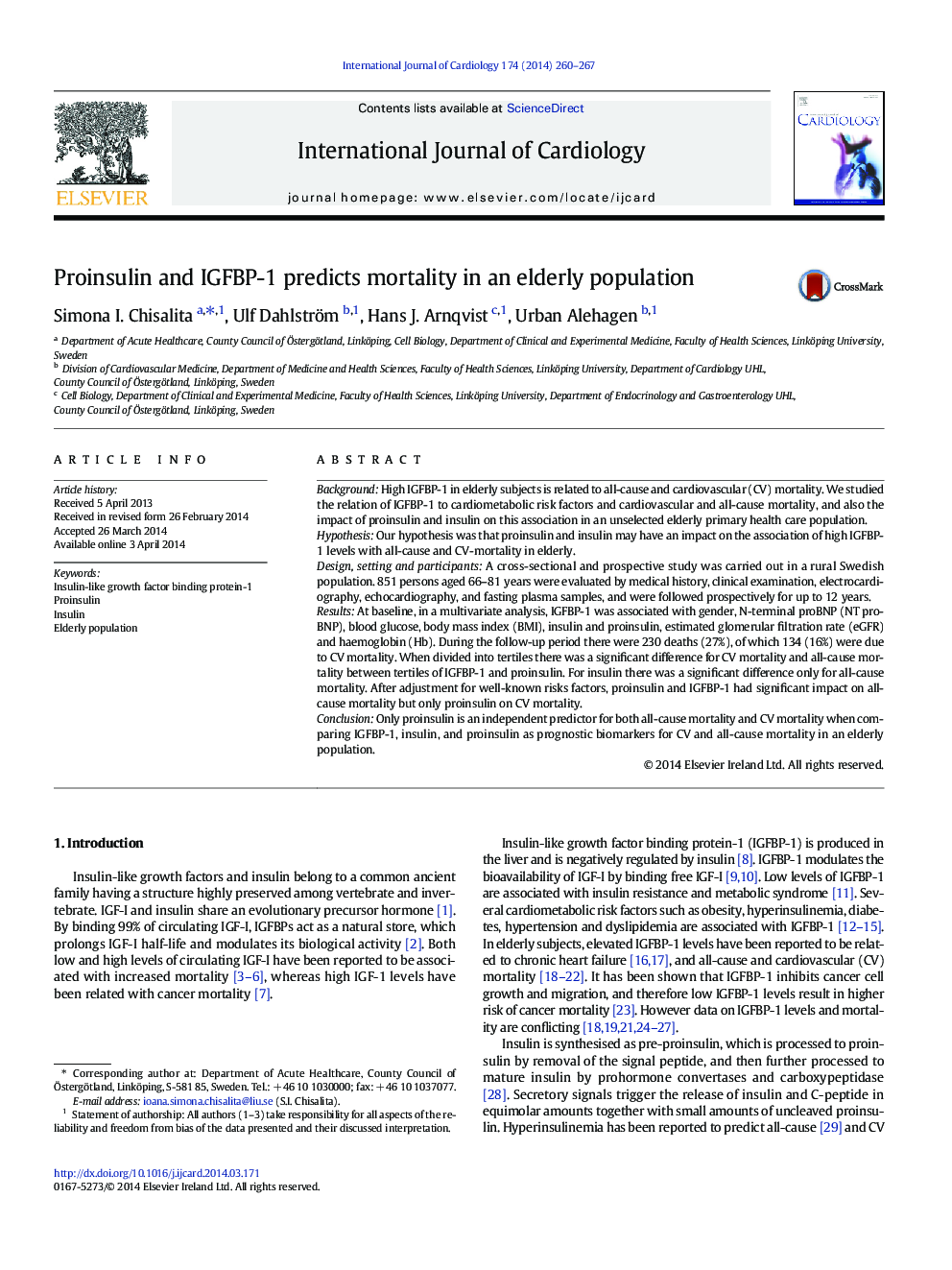| Article ID | Journal | Published Year | Pages | File Type |
|---|---|---|---|---|
| 5970174 | International Journal of Cardiology | 2014 | 8 Pages |
BackgroundHigh IGFBP-1 in elderly subjects is related to all-cause and cardiovascular (CV) mortality. We studied the relation of IGFBP-1 to cardiometabolic risk factors and cardiovascular and all-cause mortality, and also the impact of proinsulin and insulin on this association in an unselected elderly primary health care population.HypothesisOur hypothesis was that proinsulin and insulin may have an impact on the association of high IGFBP-1 levels with all-cause and CV-mortality in elderly.Design, setting and participantsA cross-sectional and prospective study was carried out in a rural Swedish population. 851 persons aged 66-81Â years were evaluated by medical history, clinical examination, electrocardiography, echocardiography, and fasting plasma samples, and were followed prospectively for up to 12Â years.ResultsAt baseline, in a multivariate analysis, IGFBP-1 was associated with gender, N-terminal proBNP (NT pro-BNP), blood glucose, body mass index (BMI), insulin and proinsulin, estimated glomerular filtration rate (eGFR) and haemoglobin (Hb). During the follow-up period there were 230 deaths (27%), of which 134 (16%) were due to CV mortality. When divided into tertiles there was a significant difference for CV mortality and all-cause mortality between tertiles of IGFBP-1 and proinsulin. For insulin there was a significant difference only for all-cause mortality. After adjustment for well-known risks factors, proinsulin and IGFBP-1 had significant impact on all-cause mortality but only proinsulin on CV mortality.ConclusionOnly proinsulin is an independent predictor for both all-cause mortality and CV mortality when comparing IGFBP-1, insulin, and proinsulin as prognostic biomarkers for CV and all-cause mortality in an elderly population.
